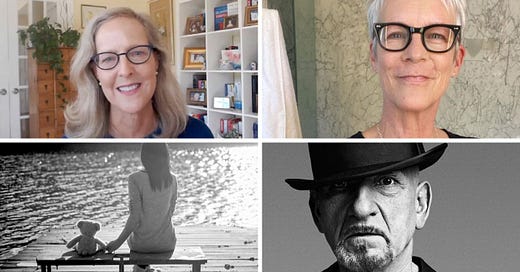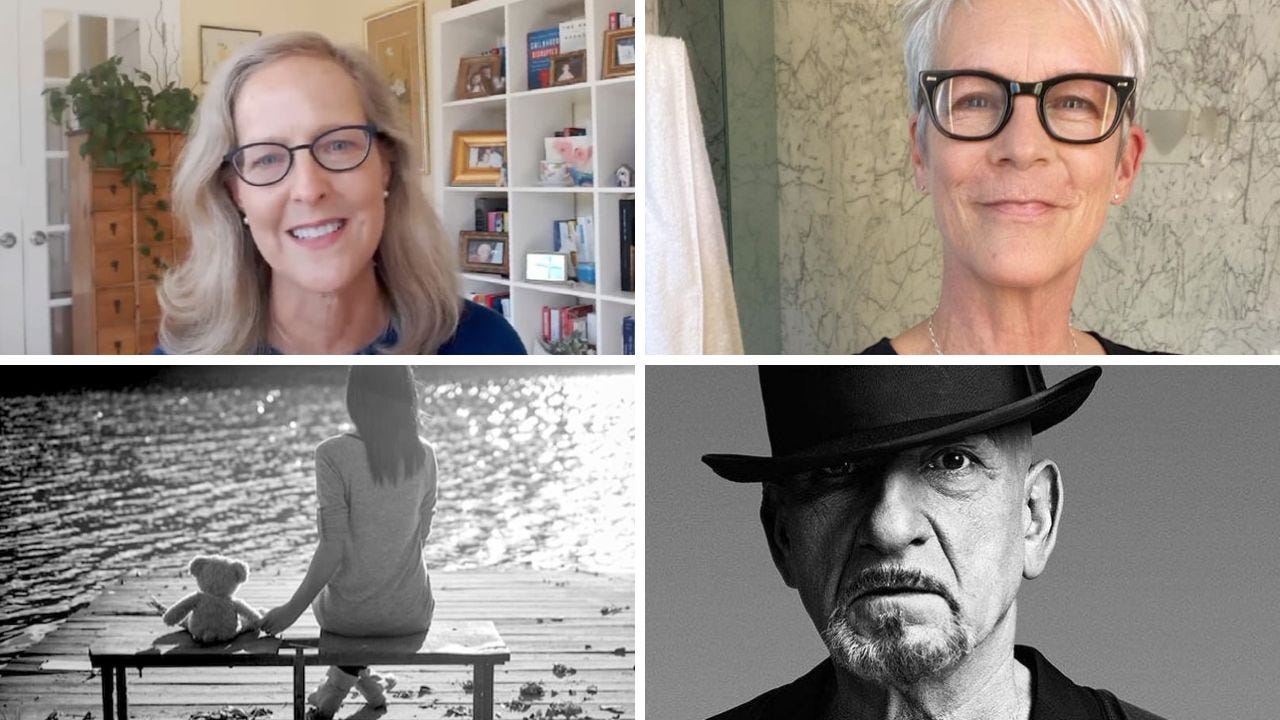“They never praised me or acknowledged a gram of talent in me. My mother, far from being proud, was very jealous of my success.” Ben Kingsley
“The fact that I get to use my work as a way to work through my trauma and my emotional problems is a gift." Christina Ricci
“If you’ve been raised in a family with narcissistic or toxic parents or siblings, where criticism, belittlement, and constant invalidation were the norm, this self-worth wound can be particularly deep and pervasive." Meg Haworth
“If you didn’t feel loved enough as a child, the world becomes the realm of the ‘unloved child’ and you find yourself on a never-ending search for acceptance and approval.” Psychotherapist Mihaela Ivan Holtz
"Because of that household dysfunction, our brains do a couple of really significant things: they begin to give us the message that we're not okay." Science journalist Donna Jackson Nakazawa
Also perspectives of Keira Knightley, trauma recovery physician Aimie Apigian, Jamie Lee Curtis, Halle Berry, therapist Julie Bjelland, and others, plus resources.
~~~~~~~~~~
Also enjoy related audio:
Adverse Childhood Experiences and creativity - A Notebook AI Podcast
Most of us have a wide variety of emotional experiences as a child and teen, and as as adults, of course.
This audio is an AI-generated "podcast" with the "speakers" doing a great job of covering main topics and quotes in the article.
~~~
Most of us have a wide variety of emotional experiences as a child and teen, and as adults, of course, often including some degree of hurt, even trauma or abuse.
These experiences can endure for us, especially when not addressed or healed, deeply impacting our lives and access to our creativity.
~~~~
Related podcast post:
How to Understand and Recover from Narcissistic and Toxic Family Dynamics
Meg Haworth, PhD recalls, "I grew up with a narcissistic parent in a toxic family system, and I also had all kinds of abuse growing up and spent a lot of time in my childhood being very sick."
This audio post is an excerpt from a longer interview with Meg Haworth talking about her adverse childhood experiences that led to her own healing and developing a mind body process that has helped many people gain clarity, health, and recovery.
In an article of hers, Dr Haworth notes “As women entrepreneurs, we already face the many challenges of running a business—balancing strategy, execution, sales, marketing, accounting, and leadership.
“But for some of us, there’s an additional, often invisible, hurdle: the inner wound of self-worth.
“If you’ve been raised in a family with narcissistic or toxic parents or siblings, where criticism, belittlement, and constant invalidation were the norm, this wound can be particularly deep and pervasive."
~~~~~
Understanding Narcissism
Does Self-compassion mean self-centered?
This is an edited reel by Sounds True with Kristin Neff, for their program Understanding Narcissism - "Features 20 Sessions of Life-Changing Insight and Guidance from Leading Experts in Psychology & Spirituality."
Video also used in post
~~~
øø Continued with more perspectives from artists, psychotherapists, and others - plus an infographic on Adverse Childhood Experiences.







